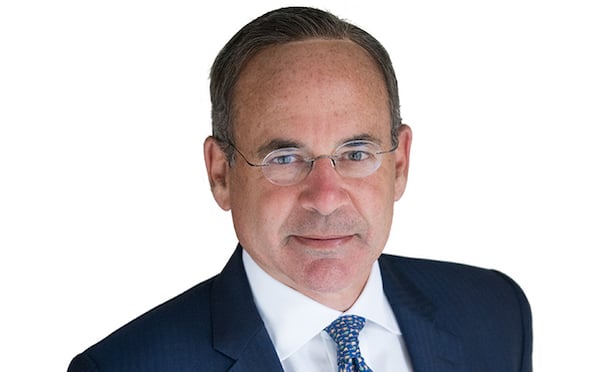 Ronald M. Dickerman, founder and president of Madison International Realty
Ronald M. Dickerman, founder and president of Madison International Realty
NEW YORK CITY—Going back a year or two, who would have ever thought that interest rates would be falling? The drumbeat had signaled the climbing of interest rates to prevent an overheated economy and to avoid inflation. But earlier this month, testifying on Capitol Hill, the Federal Reserve chairman Jerome Powell indicated although the job market was strong, the central bank would be cutting interest rates.
It's widely expected that the Federal Reserve will reduce interest rates by a quarter of a percentage point at their upcoming meeting scheduled for Wed. July 31.
“I think it's a pretty responsible sort of thing for the Fed to be walking this tightrope and wanting to make sure it doesn't trigger some type of monetary recession,” says Ronald M. Dickerman, the founder and president of Madison International Realty, in a GlobeSt.com interview. As the public had been expecting interest rates to rise this year, Dickerman calls the latest news “an unintended bonus for the real estate business.”
“Our lifeblood is borrowing costs, and spreads over cap rates and interest rates. Positive leverage is one of the great benefits of investing in commercial real estate, especially when you have fixed-income returns, the 10-year bond at 2.1%,” says Dickerman. “You can buy at five or five and a half cap and finance in the threes and you can generate a very handsome current yield.”
With the recent news of Madison International's acquiring a 5% equity stake in Signa Prime's $14 billion European portfolio, Dickerman says rates in Europe have already been relatively low. Plus, the European Central Bank has said it's considering reviving economic stimulus measures, according to a Reuters report on Thursday. ECB president Mario Draghi released a statement saying the bank decided to keep the ECB interest rates the same. They expect them to remain at their present or lower levels through the first half of 2020, then for as long as necessary.
For Madison International's European investment Dickerman says this was an example of buying at a higher cap rate than the cost of borrowing, which means a nice dividend yield profile.
Robert J. Samuelson, the economics columnist at The Washington Post, says it isn't clear that the US economy “needs another jolt of cheap credit.” He points out interest rates are low by historical standards. He notes the economy is not in a recession. He warns lower interest rates could trigger financial speculation, buying assets at low rates, creating “bubbles,” inflating prices and sending them to unrealistically high, unsustainable levels.
Samuelson also says Powell's embracing President Donald Trump's urging for more cuts could undermine the appearance of the Federal Reserve's independence.
Dickerman disagrees saying he does not think fears of financial speculation are a fair assessment. Following the latest budget deal, he has concerns about the country's escalating and bloated national debt now at $22 trillion.
He maintains his views about both the interest rates and federal deficit are non-partisan. “Back in the days with Tip O'Neill and Ronald Reagan, the way it used to work, people used to compromise and they were honorable people,” he says.
“The worst possible thing for the US economy would be that interest rates rise and the government has to pay more in borrowing costs to roll over the debt. Every time a Treasury bond expires and they have to issue new bonds, if it's at a higher interest rate the government has to spend more money. If the interest that the US government has to pay on its debt is going to increase, effectively it's going to eat us alive,” says Dickerman. “So, I would argue that falling interest rates are good and rising interest rates are bad.”
© Touchpoint Markets, All Rights Reserved. Request academic re-use from www.copyright.com. All other uses, submit a request to [email protected]. For more inforrmation visit Asset & Logo Licensing.







